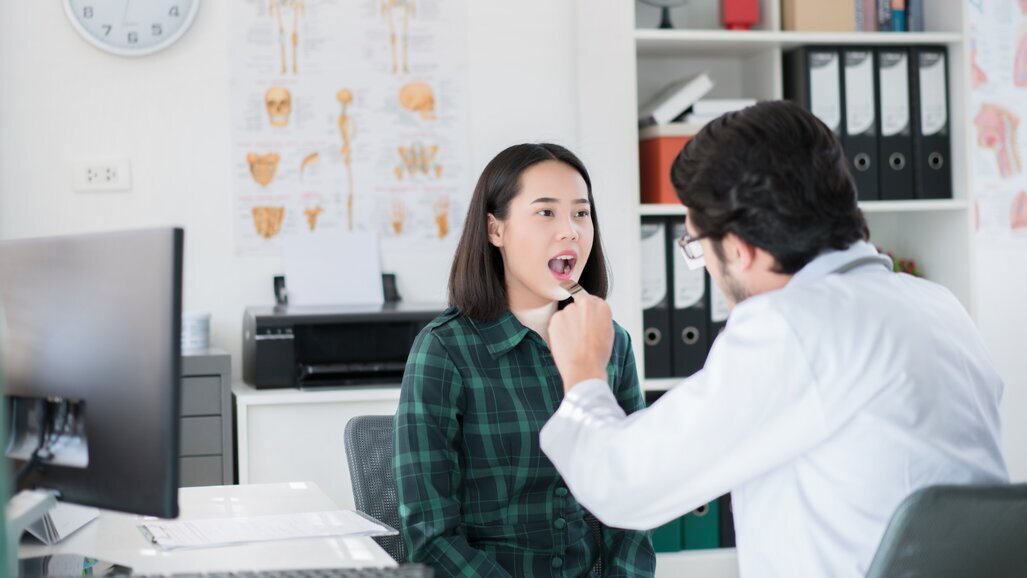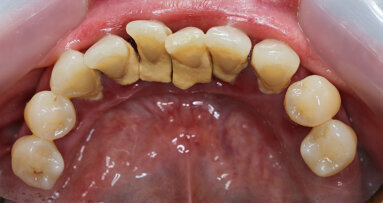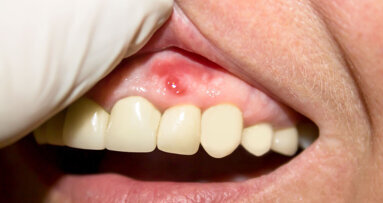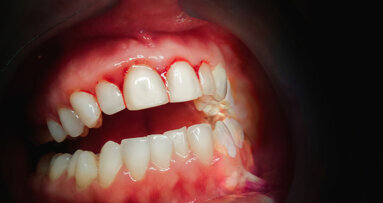BIRMINGHAM, UK: The link between periodontal disease and a range of systemic health conditions such as cardiovascular disease, Type 2 diabetes and rheumatoid arthritis is well established at this point. Researchers from the University of Birmingham are in the process of developing a rapid test for identifying the presence of periodontal disease in the hope of benefiting the overall health of patients with these comorbidities.
The device is being developed by Prof. Tim Albrecht from the university’s School of Chemistry, together with Dr Melissa Grant from the university’s School of Dentistry. It consists of a specialised probe and detector that provides a measurement of certain protein-based biomarkers that indicate both the presence and progression of periodontal disease. This biomarker panel was discovered and validated in a study published in the Journal of Clinical Periodontology by a team of researchers led by Dr Grant earlier this year.
“We believe the device we are prototyping will be the first dental probe that can identify periodontal disease in this way,” Prof. Albrecht said in a press release. “It will detect periodontitis quickly and easily in a variety of healthcare settings, opening up opportunities for monitoring and early intervention in the patients with comorbid disease, who would benefit most from rapid treatment for periodontitis.”
“The ability to detect and profile disease biomarkers in real time will allow monitoring for disease severity, and in particular the transition between milder and more severe forms of gum disease,” added Dr Grant. “This will benefit not only dental health, but also reduce costs and capture patients for whom periodontal treatment may, in the long run, be life-saving.”
The researchers recently received funding from UK Research and Innovation’s Engineering and Physical Sciences Research Council impact acceleration account, and they plan to develop a prototype of this device within a year. In the long term, they hope to develop a probe small enough to be inserted into interdental spaces that will allow dental and other healthcare professionals to collect saliva and gingival crevicular fluid and measure the periodontal disease’s progression.
“If we are able to reach our milestones, I expect that we will see significant progress over the next two to three years,” Prof. Albrecht told Dental Tribune International.
Tags:
GUILDFORD, UK: Dental disease identification is often cumbersome and time-consuming. To assist dental professionals in better detecting dental problems, ...
Traditionally, dentists have been taught that both dental caries and periodontal disease develop and progress as a direct result of patients’ ...
BIRMINGHAM, UK: In a recent study, researchers from the University of Birmingham examined the records of patients having a history of periodontal disease, ...
LONDON, UK: Though our understanding of the causes of and potential treatments for periodontal disease has advanced substantially in recent decades, new ...
LONDON, England: Balanced nutrition is known to lower the risk of major non-communicable diseases, including cardiovascular disease, neurodegenerative ...
LONDON, England: Periodontal treatment is known to trigger a short-term systemic inflammatory response, and the systemic effects of this have prompted ...
BIRMINGHAM, UK: Previous studies have confirmed a connection between periodontitis and chronic kidney disease (CKD), as they showed that patients with ...
BRUSSELS, Belgium/BIRMINGHAM, UK: Treat your gums” is the slogan for Gum Health Day 2022, a worldwide awareness campaign organised by the European ...
EuroPerio8 will be officially opened at the ExCeL London Exhibition and Convention Centre in London next week. Dental Tribune Online had the opportunity to ...
LONDON, UK: Primary immunodeficiency (PID) is characterised by a missing or poorly functioning part of the body’s immune system. Inherent from birth or ...
Live webinar
Wed. 4 March 2026
1:00 am UTC (London)
Dr. Vasiliki Maseli DDS, MS, EdM
Live webinar
Wed. 4 March 2026
5:00 pm UTC (London)
Munther Sulieman LDS RCS (Eng) BDS (Lond) MSc PhD
Live webinar
Wed. 4 March 2026
6:00 pm UTC (London)
Live webinar
Thu. 5 March 2026
1:30 am UTC (London)
Lancette VanGuilder BS, RDH, PHEDH, CEAS, FADHA
Live webinar
Fri. 6 March 2026
8:00 am UTC (London)
Live webinar
Tue. 10 March 2026
8:00 am UTC (London)
Assoc. Prof. Aaron Davis, Prof. Sarah Baker
Live webinar
Wed. 11 March 2026
12:00 am UTC (London)
Dr. Vasiliki Maseli DDS, MS, EdM



 Austria / Österreich
Austria / Österreich
 Bosnia and Herzegovina / Босна и Херцеговина
Bosnia and Herzegovina / Босна и Херцеговина
 Bulgaria / България
Bulgaria / България
 Croatia / Hrvatska
Croatia / Hrvatska
 Czech Republic & Slovakia / Česká republika & Slovensko
Czech Republic & Slovakia / Česká republika & Slovensko
 France / France
France / France
 Germany / Deutschland
Germany / Deutschland
 Greece / ΕΛΛΑΔΑ
Greece / ΕΛΛΑΔΑ
 Hungary / Hungary
Hungary / Hungary
 Italy / Italia
Italy / Italia
 Netherlands / Nederland
Netherlands / Nederland
 Nordic / Nordic
Nordic / Nordic
 Poland / Polska
Poland / Polska
 Portugal / Portugal
Portugal / Portugal
 Romania & Moldova / România & Moldova
Romania & Moldova / România & Moldova
 Slovenia / Slovenija
Slovenia / Slovenija
 Serbia & Montenegro / Србија и Црна Гора
Serbia & Montenegro / Србија и Црна Гора
 Spain / España
Spain / España
 Switzerland / Schweiz
Switzerland / Schweiz
 Turkey / Türkiye
Turkey / Türkiye
 UK & Ireland / UK & Ireland
UK & Ireland / UK & Ireland
 International / International
International / International
 Brazil / Brasil
Brazil / Brasil
 Canada / Canada
Canada / Canada
 Latin America / Latinoamérica
Latin America / Latinoamérica
 USA / USA
USA / USA
 China / 中国
China / 中国
 India / भारत गणराज्य
India / भारत गणराज्य
 Pakistan / Pākistān
Pakistan / Pākistān
 Vietnam / Việt Nam
Vietnam / Việt Nam
 ASEAN / ASEAN
ASEAN / ASEAN
 Israel / מְדִינַת יִשְׂרָאֵל
Israel / מְדִינַת יִשְׂרָאֵל
 Algeria, Morocco & Tunisia / الجزائر والمغرب وتونس
Algeria, Morocco & Tunisia / الجزائر والمغرب وتونس
 Middle East / Middle East
Middle East / Middle East

















































To post a reply please login or register